Census & Elections
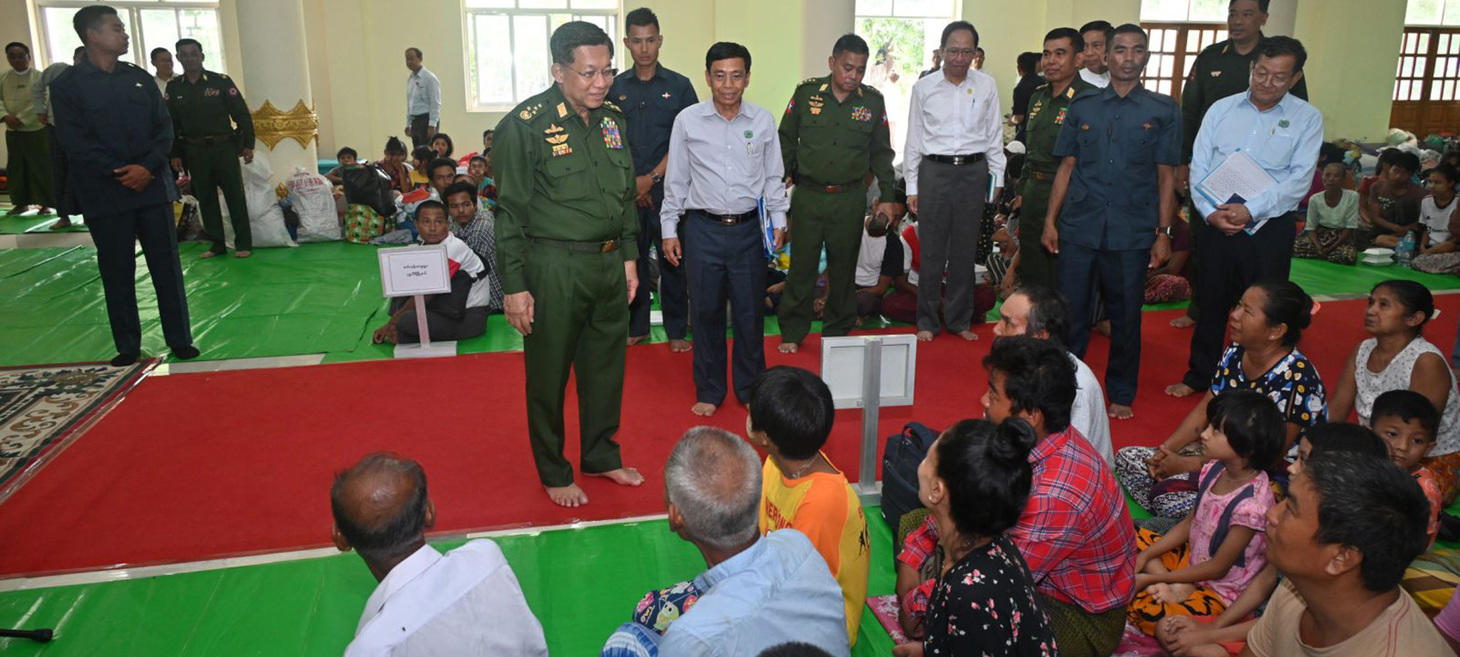
Myanmar Flood Victims Told to Return Home as Junta Boss Frets Over Poll Plan
Myanmar's military junta leader has instructed flood victims to return to their homes despite ongoing challenges, as he is concerned about the impact of the floods on the upcoming election plans. The junta is prioritizing the election, which they have promised to hold, over the immediate needs of the flood-affected population. This decision has sparked criticism and concern among the public and international observers, as it highlights the regime's focus on consolidating power rather than addressing humanitarian needs. The situation underscores the ongoing tension and instability in Myanmar, where the military continues to exert control over political processes and civil society.
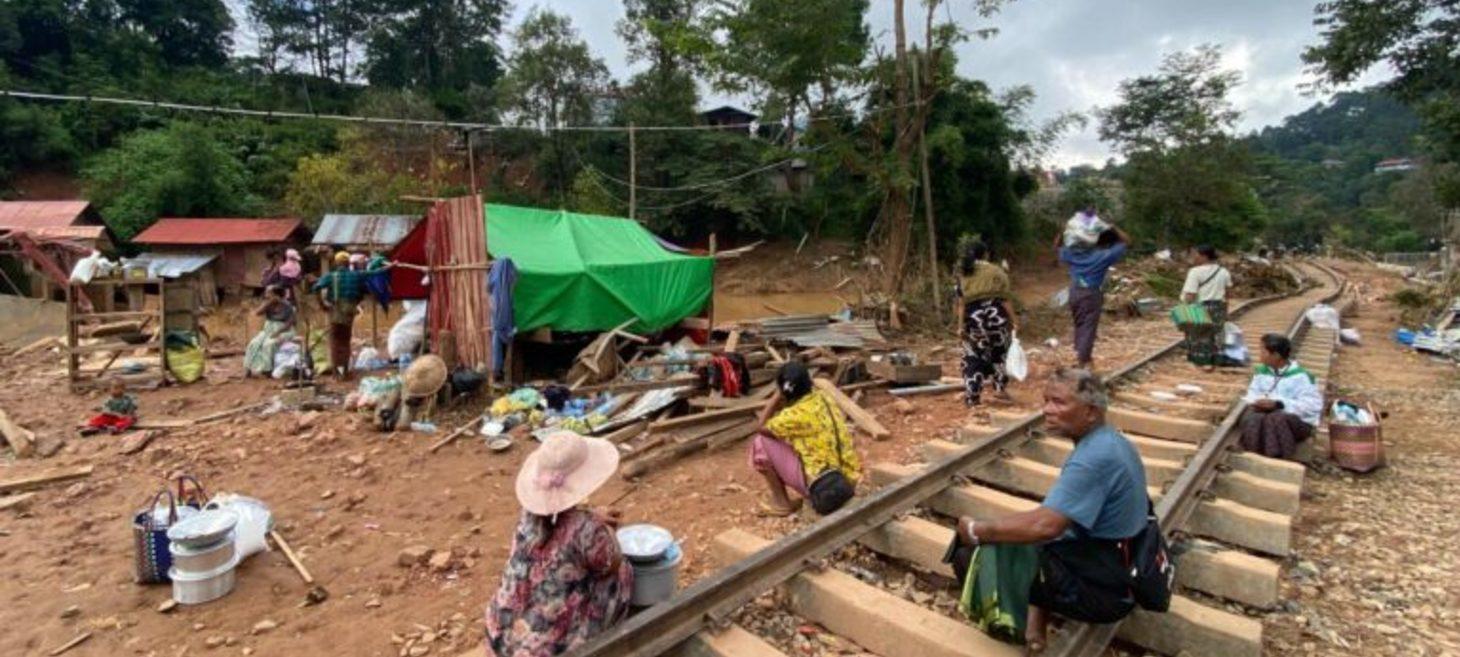
Myanmar’s ‘flood census’ brings back memories of ‘Nargis constitution’
The Myanmar junta is prioritizing a controversial census over addressing the severe impact of recent floods, reminiscent of the regime's actions following Cyclone Nargis in 2008. Scheduled to begin on October 1, the census aims to prepare for upcoming elections but is criticized for ignoring the plight of nearly 890,000 flood-affected individuals. Many victims who have lost homes and loved ones are being forced to return to their devastated areas to participate in the census. The junta's actions have drawn parallels to the "Nargis constitution," pushed through after the cyclone, and critics doubt the census will yield meaningful results. The regime's focus on political agendas over humanitarian needs has sparked widespread disapproval, as millions remain displaced due to ongoing conflict and natural disasters.
Conflict
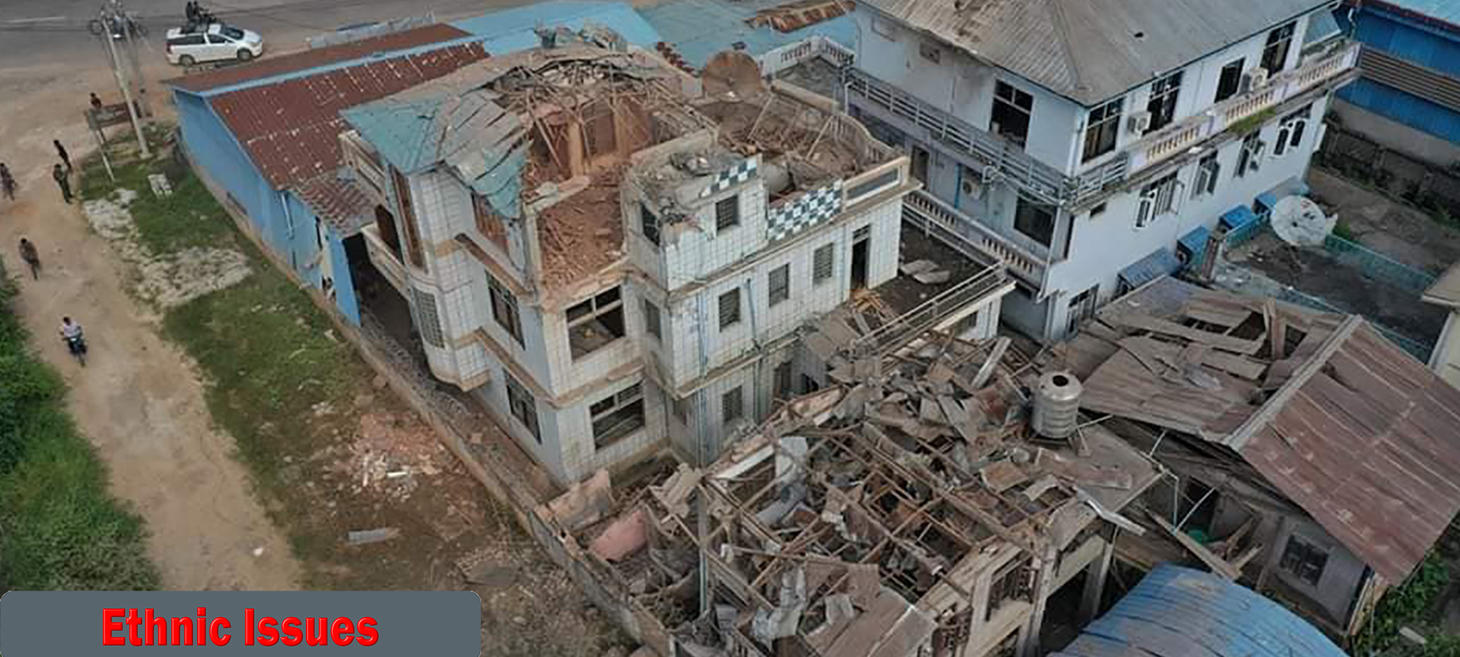
Myanmar Junta Still Bombing Lashio, Says MNDAA
The Myanmar National Democratic Alliance Army (MNDAA) has reported that the Myanmar military junta continues to conduct airstrikes in Lashio, a region in Shan State. These bombings are part of ongoing military operations targeting ethnic armed groups in the area, which have resulted in civilian casualties and displacement. The MNDAA's claims highlight the persistent conflict and instability in Myanmar, particularly in ethnic regions where the junta is attempting to assert control. The situation has drawn international concern, as the military's actions exacerbate the humanitarian crisis and undermine efforts for peace and reconciliation in the country.
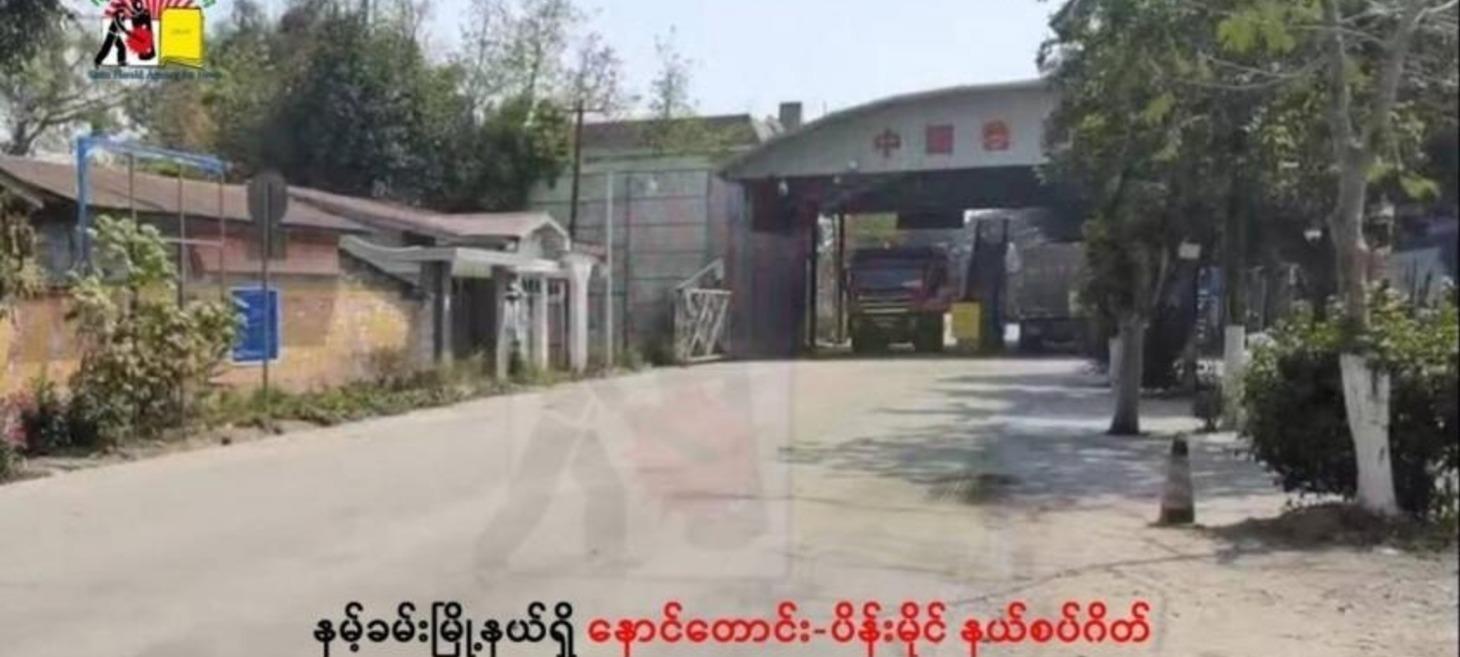
Residents face shortages in Namkham Town, northern Shan State
Junta airstrikes on Namkham, a town in northern Shan State controlled by the Ta’ang National Liberation Army (TNLA), have severely disrupted the flow of goods, leading to shortages and significant price increases. Since the TNLA took over Namkham on November 7, 2023, the junta has been targeting the town, with the latest airstrike on September 9, 2024, resulting in the deaths of 10 civilians and the destruction of homes. The threat of further attacks has caused most residents to flee and deterred traders from entering the town, exacerbating the difficulties for those remaining. Chinese authorities' closure of the Nawngtawng border gate on July 17, 2024, and disrupted trade routes from Mandalay have further isolated Namkham, worsening the supply crisis. The TNLA, part of the Three Brotherhood Alliance, maintains control and security in the town, but the junta's designation of the alliance as a terrorist organization has led to frequent airstrikes, intensifying the humanitarian crisis.

Is the Breakup Between MNDAA and NUG true?
Before the second wave of the 1027 Operation, members of the Federal Political Negotiation and Consultative Committee (FPNCC), including the Myanmar National Democratic Alliance Army (MNDAA), attended a workshop in Kunming, China, which turned out to be an official meeting with Chinese officials. China made five demands to ensure border stability, including refraining from threatening border security and opposing cooperation with Western countries. Despite these demands, the Three Brotherhood Alliance launched the second wave of the 1027 Operation. Chinese Foreign Minister Wang Yi met with Myanmar's SAC leader, offering a $3 billion loan and support for the 2025 election. Resistance groups ignored China's demands, capturing the Myanmar North-eastern Military Command in Lashio. In response, the SAC, with China's help, launched fierce attacks, while China pressured resistance groups by cutting electricity and internet services. Under Chinese pressure, the MNDAA announced it would cease operations in Mandalay and Taunggyi and not collaborate with the NUG or PDFs, indicating a shift towards aligning with China. This situation serves as a lesson for resistance groups about the complexities of international alliances.
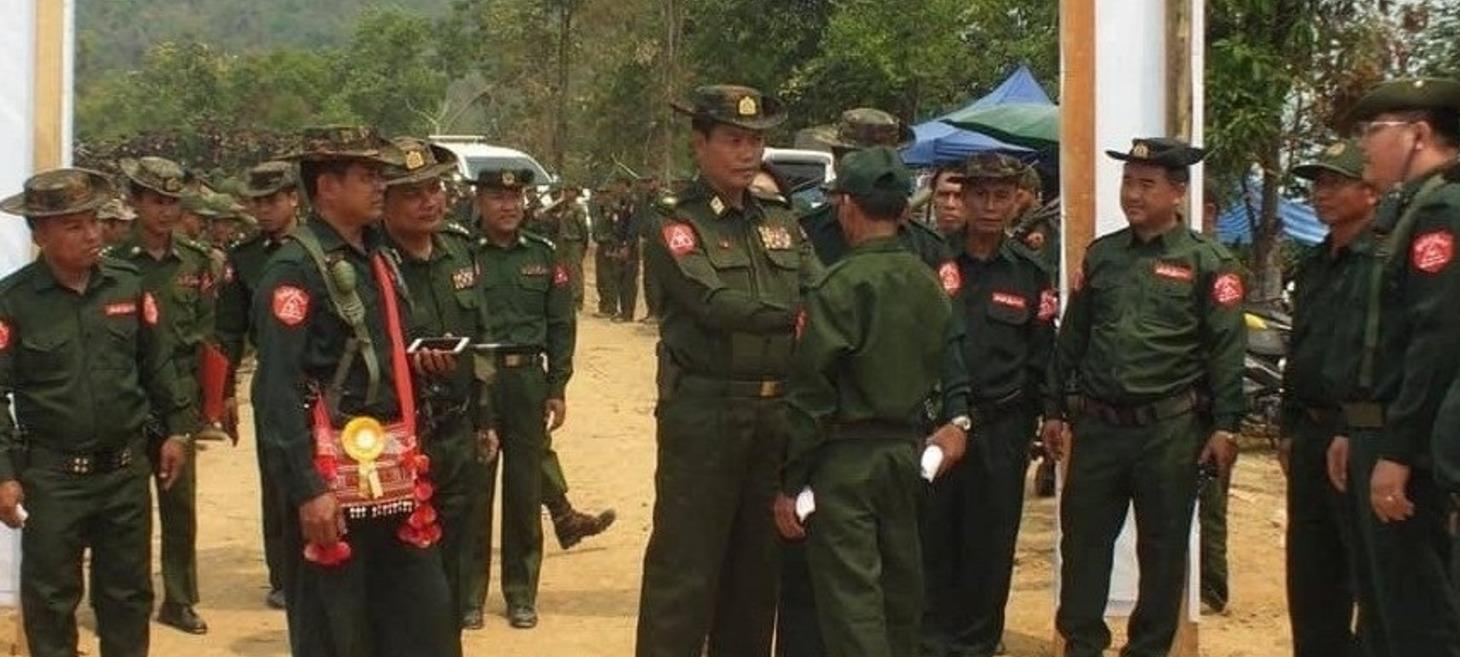
Junta and militia launch joint attack on RCSS base in Mongpeng, Shan State
The Myanmar junta, along with allied militia forces, launched a joint attack on the Restoration Council of Shan State/Shan State Army (RCSS/SSA) base in Mongpeng Township, eastern Shan State. According to RCSS spokesperson Major Sai Kham San, around 100 junta soldiers and militia members attacked the RCSS base in Yangkham Village Tract, leading to intense gun battles. The RCSS reportedly captured some weapons from the attackers, and there may be casualties on the junta's side, although the situation remains tense, and details are still emerging. The Lahu militia group is believed to have assisted the junta, though this has not been confirmed. This conflict follows the junta-controlled National Solidarity and Peacemaking Negotiation Committee's invitation to the 7EAO Alliance, which includes seven ethnic armed organizations that have signed the Nationwide Ceasefire Agreement, to meet in Naypyidaw. The RCSS, which chairs the alliance, did not attend the meeting, and the clash with the junta occurred weeks later.
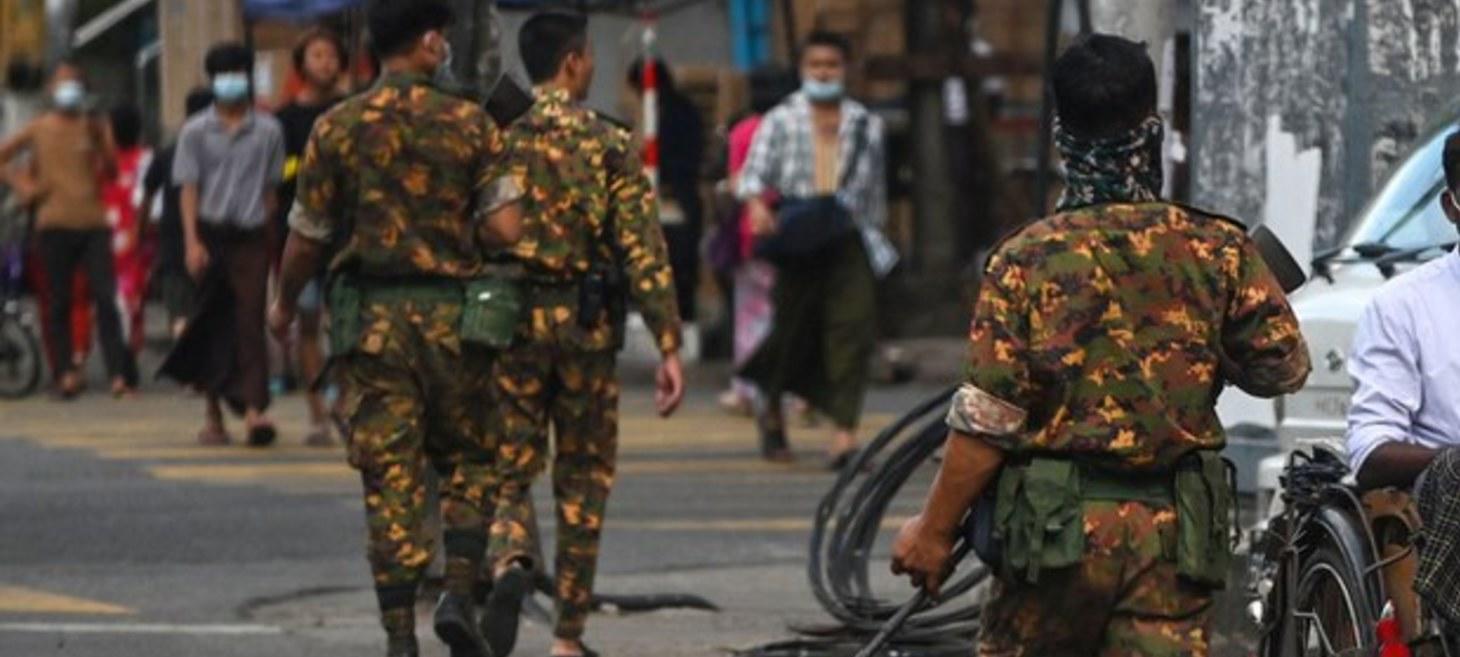
Myanmar guerrillas arrested in bid to attack air base, group says
Myanmar junta authorities have arrested two members of the urban guerrilla group Dark Shadow, who were planning a rocket attack on the Hmawbi Air Base, a key military site used for launching airstrikes on civilians. The group stated that while these two fighters were captured, other members involved in the planned attack managed to escape. The Hmawbi Air Base is strategically important as it supports operations in Kayah State and the Tanintharyi region and serves as a hub for jet fuel distribution and aircraft maintenance. Despite significant gains by anti-junta forces, they remain outgunned by the junta's air force, which has intensified attacks on both insurgents and civilians. The U.N. reported a five-fold increase in military airstrikes on civilian targets in the first half of the year. Previous attempts by Dark Shadow to target junta facilities have resulted in severe consequences, including the death of members under interrogation. The outlook for the detained members is bleak, as captured anti-junta activists rarely receive legal protection.
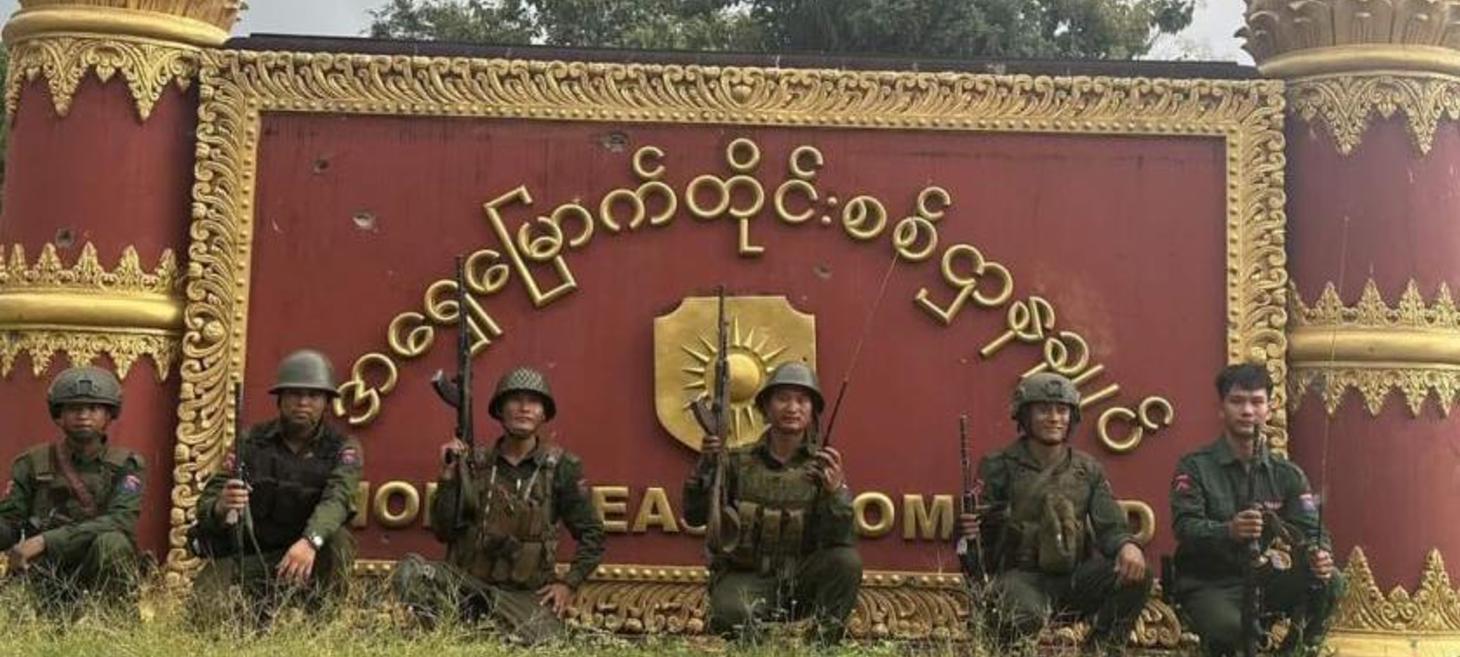
MNDAA distances itself from NUG as it announces end to offensive amid Chinese pressure
The Myanmar National Democratic Alliance Army (MNDAA) has announced it will cease military cooperation with Myanmar's National Unity Government (NUG) and halt its offensive operations, a decision influenced by pressure from China. This move comes after the MNDAA and its ally, the Ta’ang National Liberation Army (TNLA), gained control over much of northern Shan State, including Lashio, during Operation 1027. Despite this announcement, the MNDAA stated it would not attempt to capture Taunggyi or Mandalay and would maintain its right to self-defense if attacked. The decision reflects China's dissatisfaction with instability along its border with Shan State and its broader geopolitical interests, including reopening trade corridors disrupted by ongoing conflicts. While this development may affect MNDAA's relations with other resistance groups, it is not expected to significantly impact other anti-junta offensives in the region.
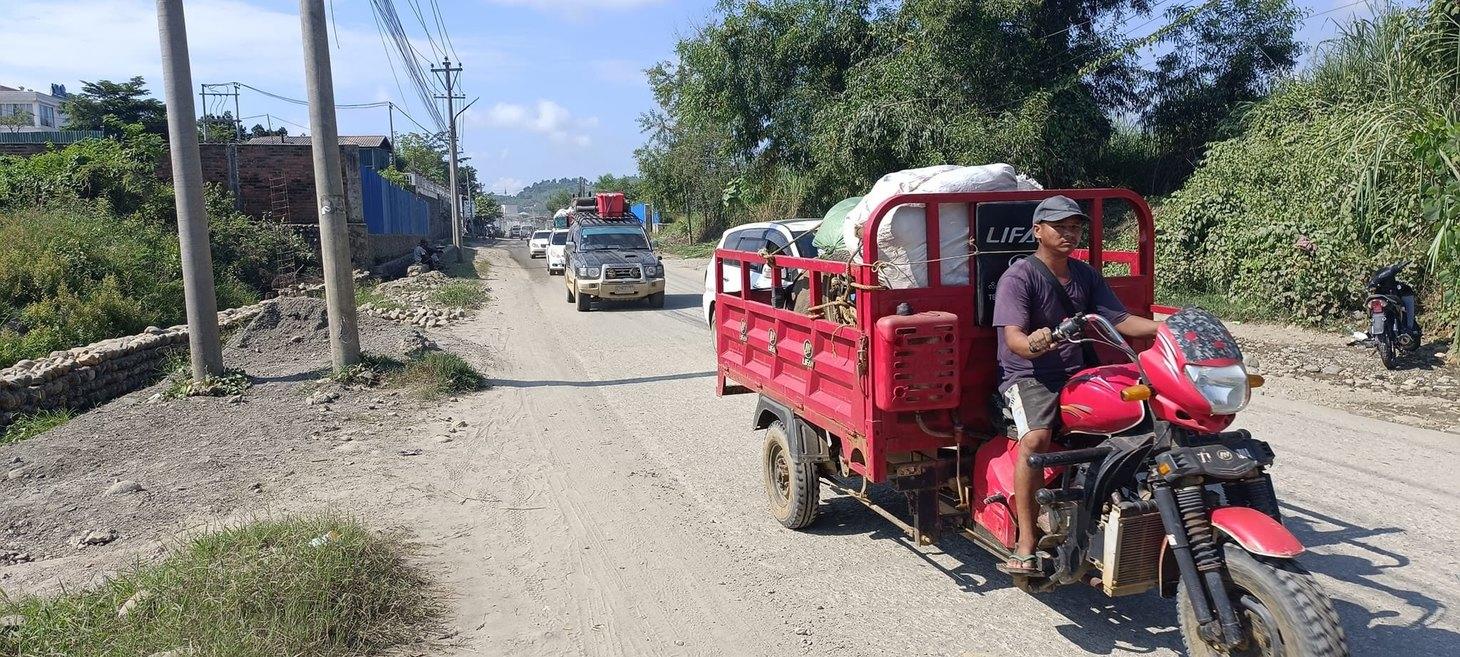
Escalated fighting in Kachin State prompts exodus from Hpakant
Intensified fighting in Kachin State has led to a mass exodus from Hpakant, as clashes between Myanmar's regime forces and a coalition led by the Kachin Independence Army (KIA) continue. The KIA and its allies have enforced a blockade on routes into Hpakant, a major jade production hub, following the outbreak of hostilities on September 7 in Hseng Taung village. The conflict has resulted in over 30 civilian deaths due to shelling and airstrikes, prompting thousands to flee. The military's aggressive tactics, including airstrikes and artillery shelling, have caused significant destruction, with more than 150 houses burned and numerous civilian casualties. Despite capturing several military bases, the KIA and its allies face ongoing resistance from junta forces, who maintain control over key positions in the region. The situation remains volatile, with shops closing and residents evacuating in anticipation of further battles.
Conscription
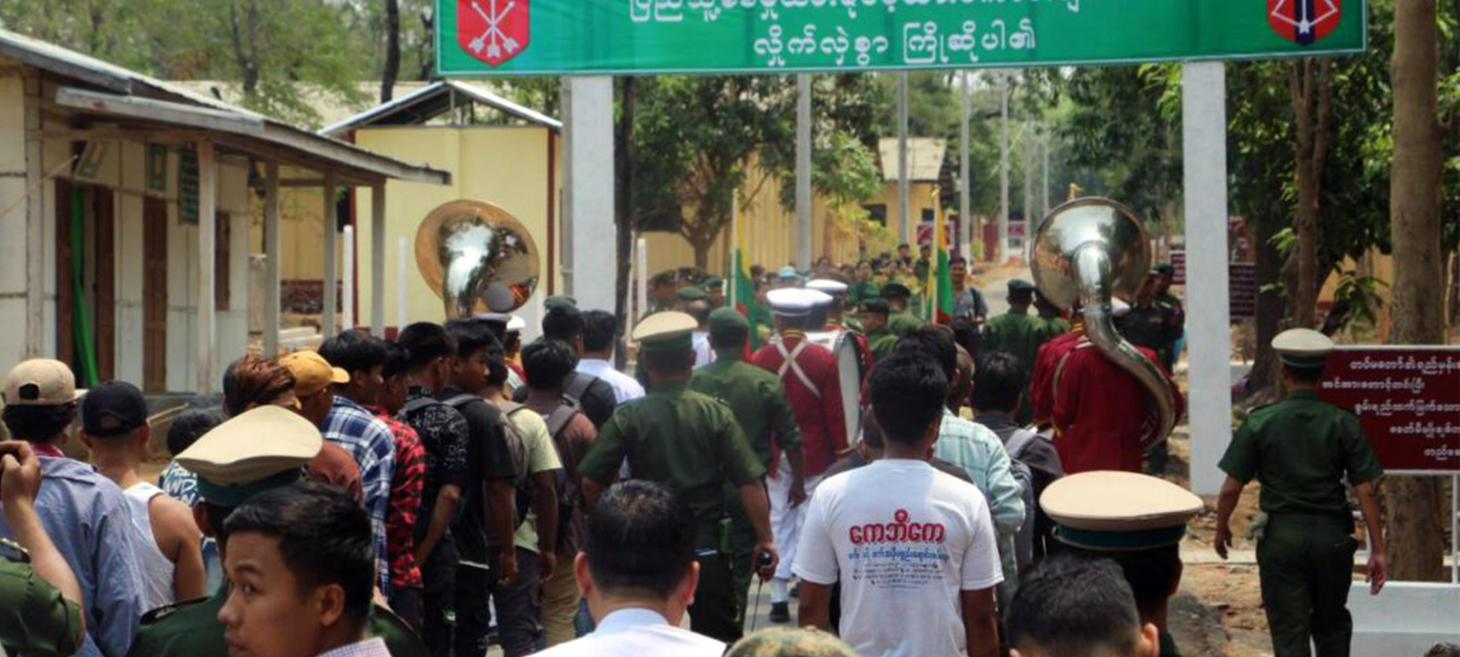
Myanmar Junta Recruiting HIV and TB Sufferers
The Myanmar military junta is reportedly recruiting individuals suffering from HIV and tuberculosis, a move that has raised significant ethical and humanitarian concerns. This recruitment effort comes amid a broader context of a crumbling healthcare system in Myanmar, exacerbated by the military's seizure of power in 2021. The healthcare crisis has left many HIV patients struggling to access life-saving antiretroviral therapy (ART) due to clinic closures, bureaucratic hurdles, and reduced funding from international donors wary of their contributions benefiting the junta. The situation is further complicated by the stigma and discrimination faced by HIV patients, many of whom are from marginalized communities. This recruitment strategy by the junta highlights the dire circumstances and desperation faced by vulnerable populations in Myanmar, as well as the ongoing challenges in addressing public health needs in a conflict-ridden environment.
Crime & Narcotics

Myanmar’s Silent Digital Crisis
Myanmar is facing a silent digital crisis where non-consensual pornography and sextortion are rampant, particularly affecting young women in the war-torn country. The lack of regulation and weak cybersecurity have allowed platforms like Telegram to become breeding grounds for these cybercrimes, exploiting the conservative societal norms that often blame victims. The military regime's control over information and the collapse of the legal system since the 2021 coup have exacerbated the situation, leaving victims without protection or justice. This crisis highlights the urgent need for tailored policies to protect vulnerable populations and address the deeply entrenched exploitation in Myanmar's digital landscape.
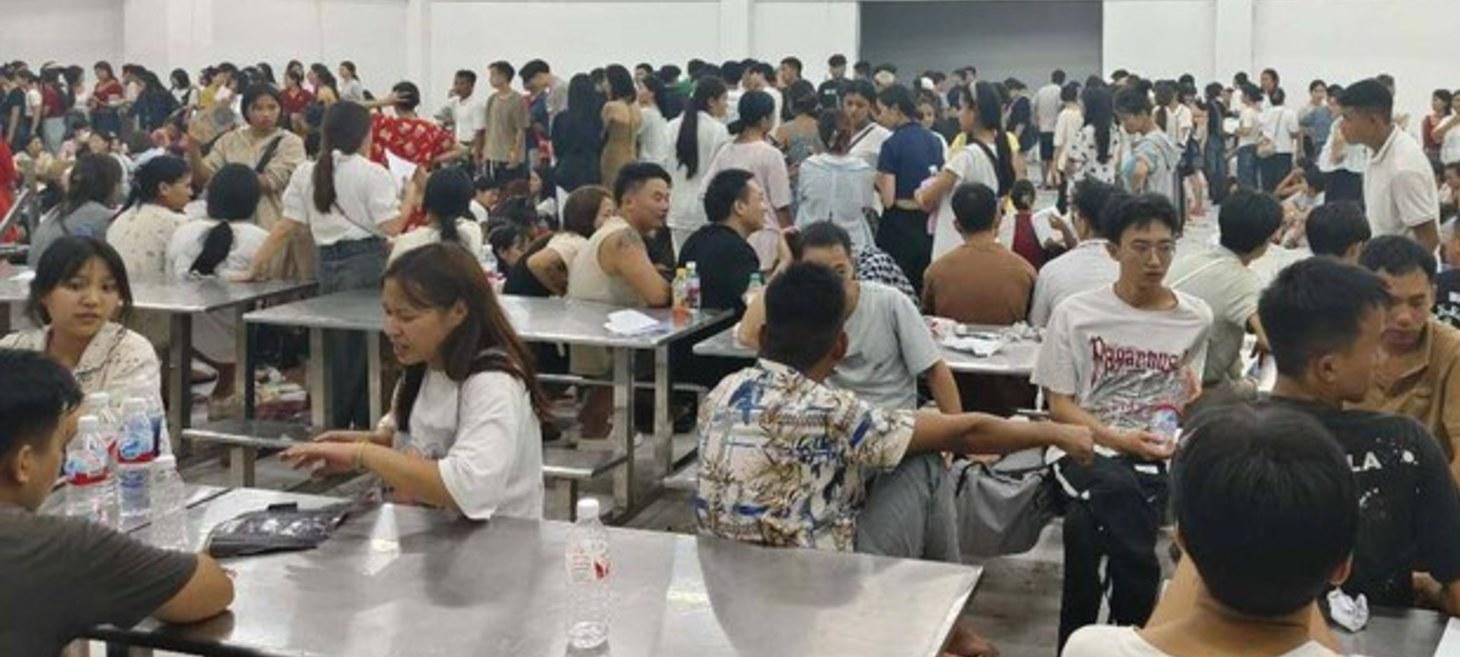
Myanmar junta raids Shan state online scam center, detains hundreds
Myanmar junta authorities arrested nearly 750 individuals, including over 240 Chinese nationals, in a raid on an online scam operation near the China-Myanmar border in Muse, Shan State. This crackdown follows China's year-long pressure on Myanmar to address online fraud gangs targeting Chinese citizens. The raid led to a shootout between junta forces and a pro-junta militia guarding the scam center, resulting in tightened security in Muse. The arrested Chinese nationals are expected to be handed over to Chinese authorities. These scam operations, often run by Chinese gangsters, exploit individuals through "pig-butchering" schemes, tricking victims into investing in fake ventures. Despite previous cooperation, action against these scams has waned due to intensified conflict between Myanmar's military and anti-junta forces. China, concerned about its economic interests in Myanmar, has urged both the junta and insurgent groups to cease hostilities and supports the junta's planned election and census as potential steps toward resolving the conflict.
Foreign Affairs
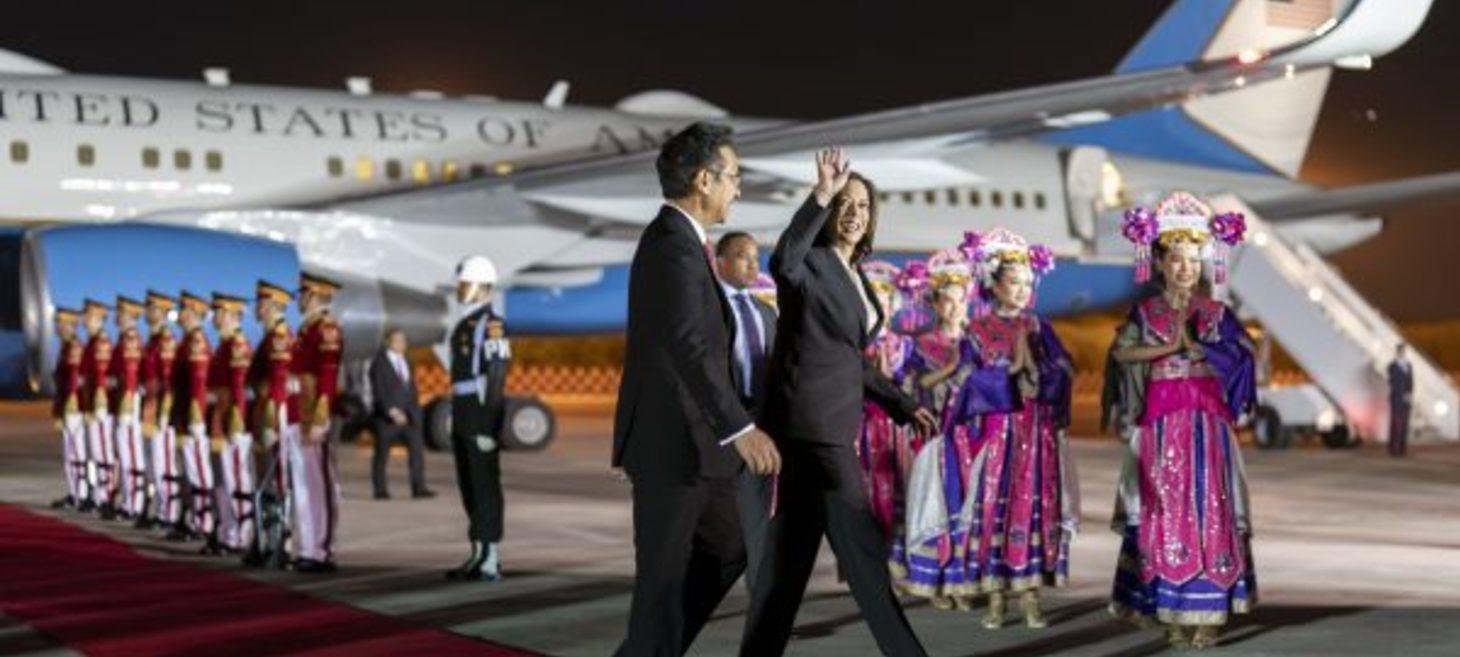
What Could a Harris Administration Mean for Southeast Asia?
A potential Kamala Harris administration is expected to enhance U.S. engagement with Southeast Asia, focusing on countering China's influence despite Harris's relative inexperience in foreign affairs. During her vice presidency, Harris has actively engaged with Southeast Asian leaders, traveling more frequently to the region than President Biden. She has been central to implementing the Biden administration's Asia policy. While U.S. relations with Southeast Asia improved under Biden-Harris, challenges remain, particularly in economic engagement, as the Indo-Pacific Economic Framework for Prosperity (IPEF) lacks market access provisions. Harris's trade policy stance is cautious, and she is unlikely to re-enter the Comprehensive Progressive Trans-Pacific Partnership (CPTPP). However, she is expected to finalize IPEF negotiations, focusing on supply chain resilience and anti-corruption. Harris's administration may also see a shake-up in foreign policy leadership, potentially impacting U.S. strategy in the region.

Japan To Downgrade Diplomatic Ties With Myanmar Junta, Report Says
Japan has decided to downgrade its diplomatic ties with Myanmar's military junta by replacing its ambassador with a chargé d’affaires, joining other countries like the United States, United Kingdom, and Australia in protest against the junta's violent crackdown on opponents. This move, reported by The Irrawaddy, indicates Japan's alignment with international condemnation of the junta's actions since the 2021 coup. Despite Japan's calls for the junta to end violence and release political prisoners, it has been criticized for not imposing sanctions and continuing engagement with junta officials. Japan's decision reflects a pragmatic approach, balancing its geopolitical interests and influence in Myanmar against moralistic sanctions, which it believes could create a vacuum filled by China. This diplomatic shift underscores Japan's cautious stance in addressing Myanmar's ongoing political crisis.
General News

Thailand Sees Surge in Condo Transfers to Buyers From Myanmar
Thailand has experienced a significant increase in condominium transfers to buyers from Myanmar, as many Myanmar nationals seek to move their wealth abroad amid the country's ongoing crisis. This trend has positioned Myanmar buyers as some of the top foreign investors in Thailand's real estate market, second only to Chinese buyers in the first quarter. However, the Myanmar military regime has attempted to curb this outflow of capital by arresting individuals involved in real estate transactions in Thailand without the central bank's permission. These arrests highlight the regime's efforts to control financial assets and prevent capital flight, reflecting the broader economic and political instability in Myanmar.
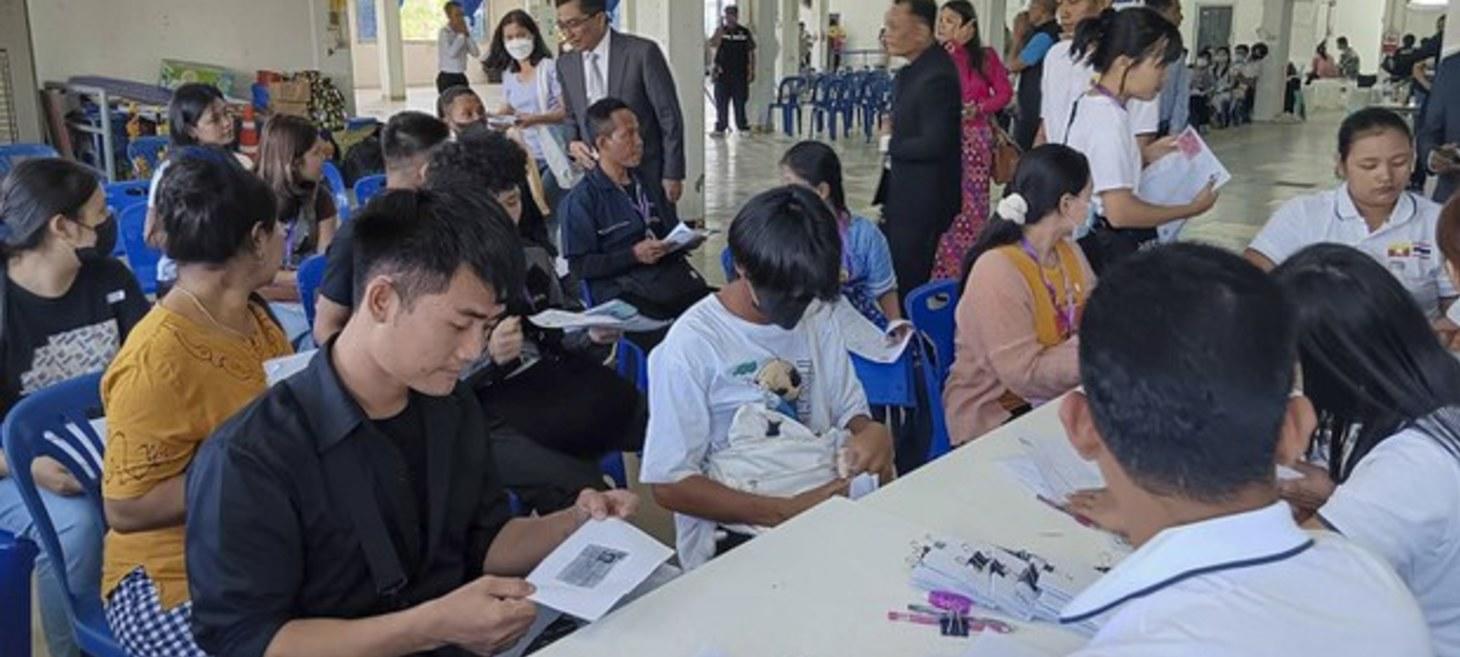
Myanmar students in Thailand must renew passports at home, junta says
Myanmar nationals studying in Thailand on short-term education visas are now required to return home to renew their passports, as announced by the junta. This new restriction is part of the junta's efforts to address troop shortages following losses to rebel armies opposing the military coup of February 1, 2021. The draft has led many draft-eligible individuals to join opposition groups or flee the country. The restriction is expected to result in more Myanmar nationals staying in Thailand illegally, as returning home to renew passports is seen as risky. While students in undergraduate and postgraduate programs can apply for a "Passport for Education" to remain legally, others face challenges. Labor advocates and the shadow National Unity Government criticize the junta's actions, viewing them as targeting the middle class and hindering young people's development. Advocates urge Myanmar nationals to apply for residency in Thailand to avoid the new restrictions.
Bribes Demanded to Register on Overnight Guest Lists in Dawei City
Since the coup in Myanmar, the enforcement of overnight guest registration laws has intensified, with frequent checks and penalties for non-compliance. In Dawei City, residents report that while guest registration was previously free, ward administrators now charge fees—3,000 Kyats for initial registration and an additional 4,000 Kyats monthly. In some areas, such as Waekyunn Myothit, Kyaukmaw, and Kyetsarpying wards, guests must be re-registered every 7 to 10 days. The registration process requires the household head to submit photographs of all residents and guests, and exceeding a specified number of guests can lead to punitive action. Different wards have varying rules and registration dates, complicating compliance, especially for internally displaced persons (IDPs) who cannot afford the fees. Residents face threats from ward administrators if they fail to register guests, highlighting the increased bureaucratic and financial burdens imposed by the junta.
Humanitarian
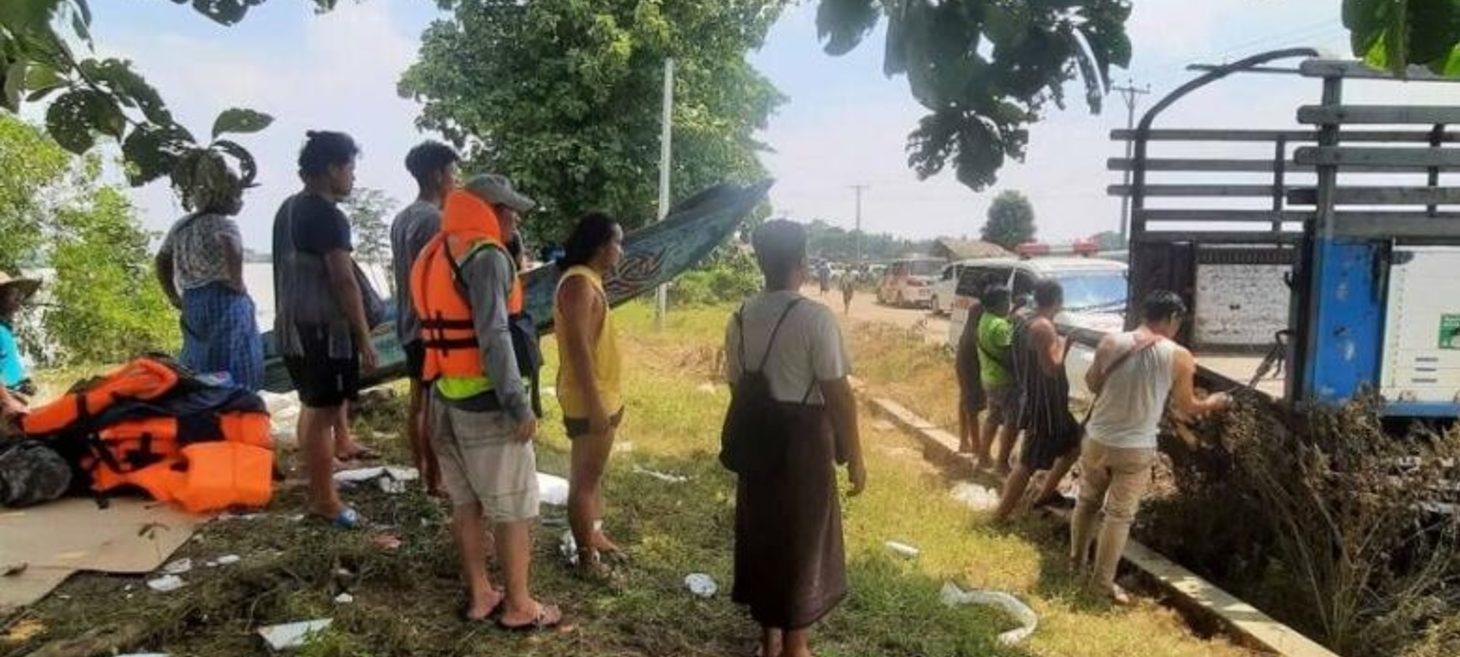
Junta blocking flood relief aid in Taungoo Township, Shan State
In Taungoo Township, Shan State, local junta-appointed authorities are obstructing the delivery of aid to flood victims following severe flooding caused by the Sittaung River bursting its banks. Despite efforts by local and regional aid organizations to provide assistance, including sending small boats for rescue and aid delivery, authorities have restricted access, preventing much-needed supplies from reaching affected areas. The flooding, exacerbated by the tail end of Typhoon Yagi, has left around 100 households trapped and in urgent need of food, medicine, and rebuilding materials. The junta's restrictions have also led to stockpiles of building materials in nearby villages, unable to be distributed to those in need. Additionally, the situation is worsened by thefts in vacated flooded homes, further complicating recovery efforts for the affected residents.
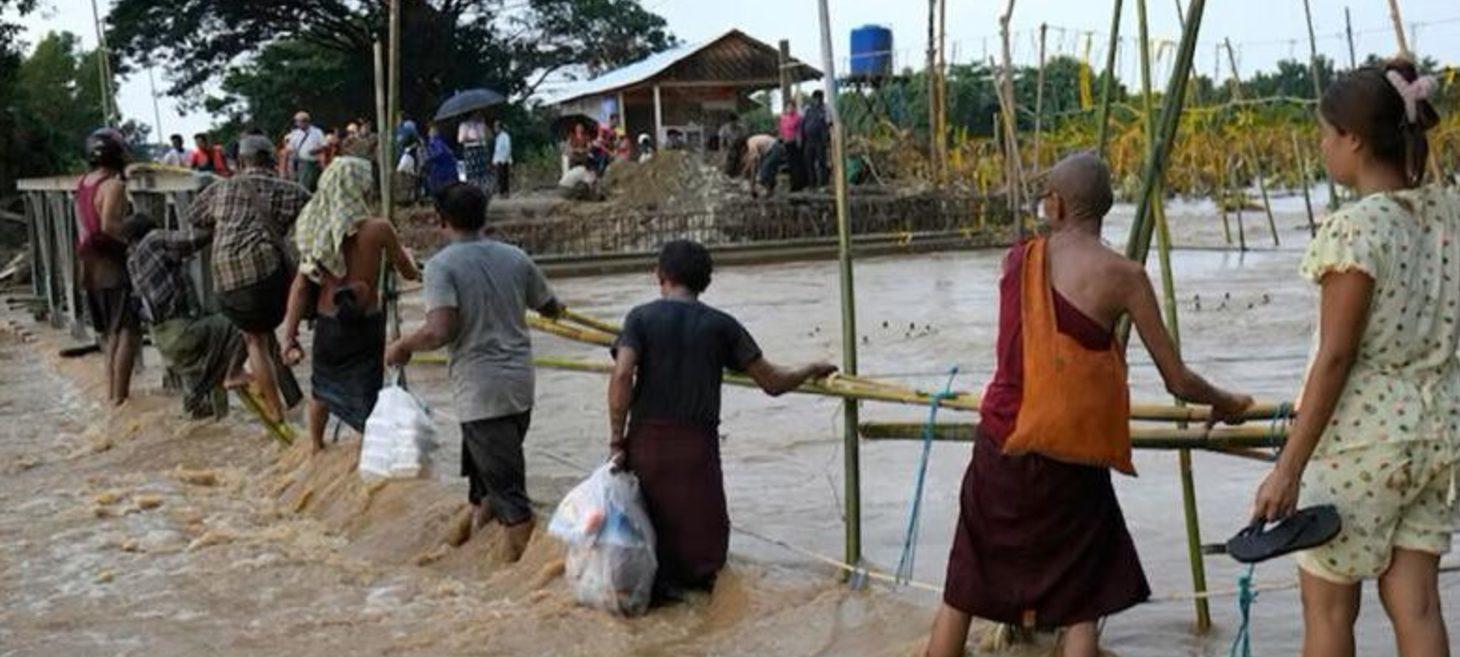
SAC-M Calls on Myanmar’s Neighbours To Allow Aid Into the Country
The SAC-M, an independent group of international human rights experts, has issued a statement urging neighboring countries and the international community to facilitate the delivery of humanitarian aid to Myanmar, which has been severely affected by Typhoon Yagi. The storm, which hit Myanmar on September 10, 2024, has caused extensive flooding and landslides, affecting around 700,000 people and resulting in over 1,000 casualties, according to estimates by ethnic resistance forces. The junta-controlled state media reports lower figures, but the SAC-M suggests the impact is much greater. The junta has been blocking aid from reaching flood victims, exacerbating the existing humanitarian crisis caused by years of conflict. The SAC-M recommends engaging with Myanmar resistance authorities and civil society for aid distribution, as they have more control and experience in administering assistance. The statement warns against working with the junta, which may use aid to further its military and political agenda. It calls for international actors to ensure aid reaches those most in need without being manipulated by the junta, emphasizing its lack of legitimacy. The SAC-M urges Myanmar's neighbors and the global community to support the people of Myanmar and prevent the junta from exploiting the disaster.
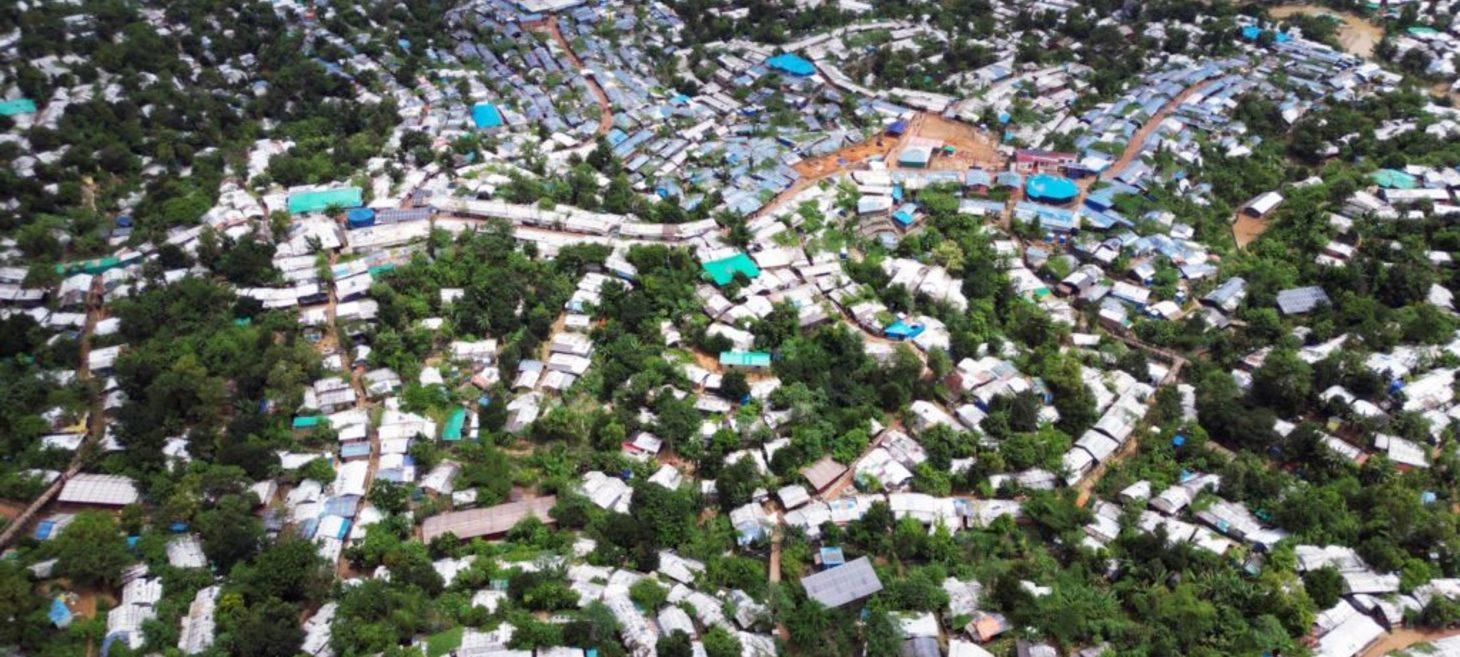
Rohingya refugees detail worsening violence in Rakhine
Rohingya refugees have reported escalating violence in Rakhine State, Myanmar, where they face forced conscription by both the Myanmar military and armed groups like the Arakan Army (AA). Many Rohingya have been coerced into fighting or serving as porters for the military, leading to revenge attacks against civilians and pushing thousands to flee to Bangladesh. The AA and other groups deny conscripting refugees, but the conflict has resulted in significant casualties, with reports of over 100 Rohingya killed in a single attack. The violence has exacerbated the humanitarian crisis, with Bangladesh struggling to accommodate new arrivals amid its own political upheaval. The situation remains dire, with accusations of abuses by both the Myanmar military and the AA, and the Rohingya caught in the crossfire.
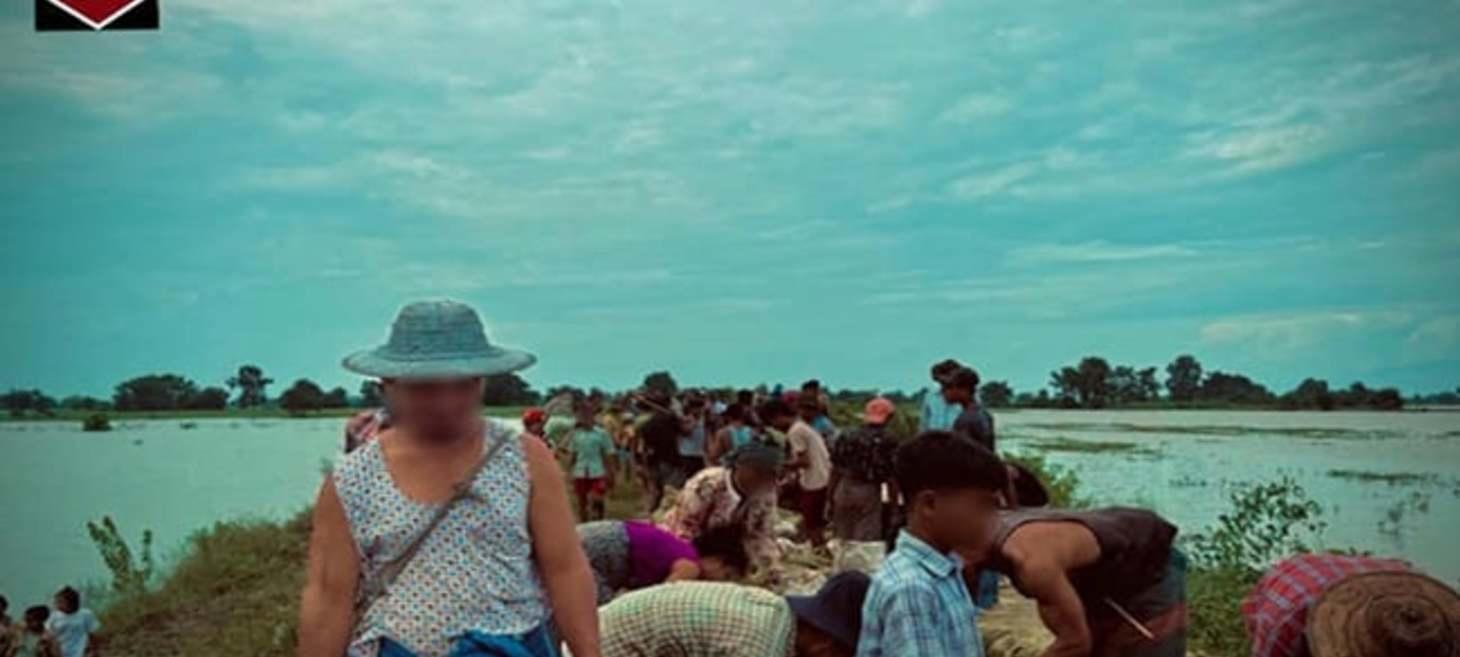
NUG collaborates with PDF to aid flood recovery in eastern Bago Region
The Ministry of Humanitarian Affairs and Disaster Management of Myanmar's National Unity Government (NUG), in collaboration with the People's Defense Forces (PDF), is actively engaged in flood recovery efforts in the Sittaung River basin, particularly in the severely affected townships of Yedashe, Taungoo, Htantabin, Oktwin, Phyu, and Nyaunglebin. Comrade Tin Oo, commander of the No. 2 Southern Military Region, emphasized the joint efforts of the PDF and local resistance forces in aiding flood victims. Despite these efforts, the Military Council has obstructed rescue operations by blocking access to certain villages and confiscating relief supplies. The flooding, exacerbated by remnants of Typhoon Yagi, has severely impacted around 45 villages under NUG control, leading to the establishment of approximately 50 evacuation centers in Taungoo District. Criticism has been directed at the Military Council for its inadequate response and failure to provide timely disaster warnings, which has worsened the situation for affected residents. The ongoing recovery efforts face challenges due to the Military Council's actions, but local and international donors continue coordinating with resistance forces to deliver essential aid.
Military
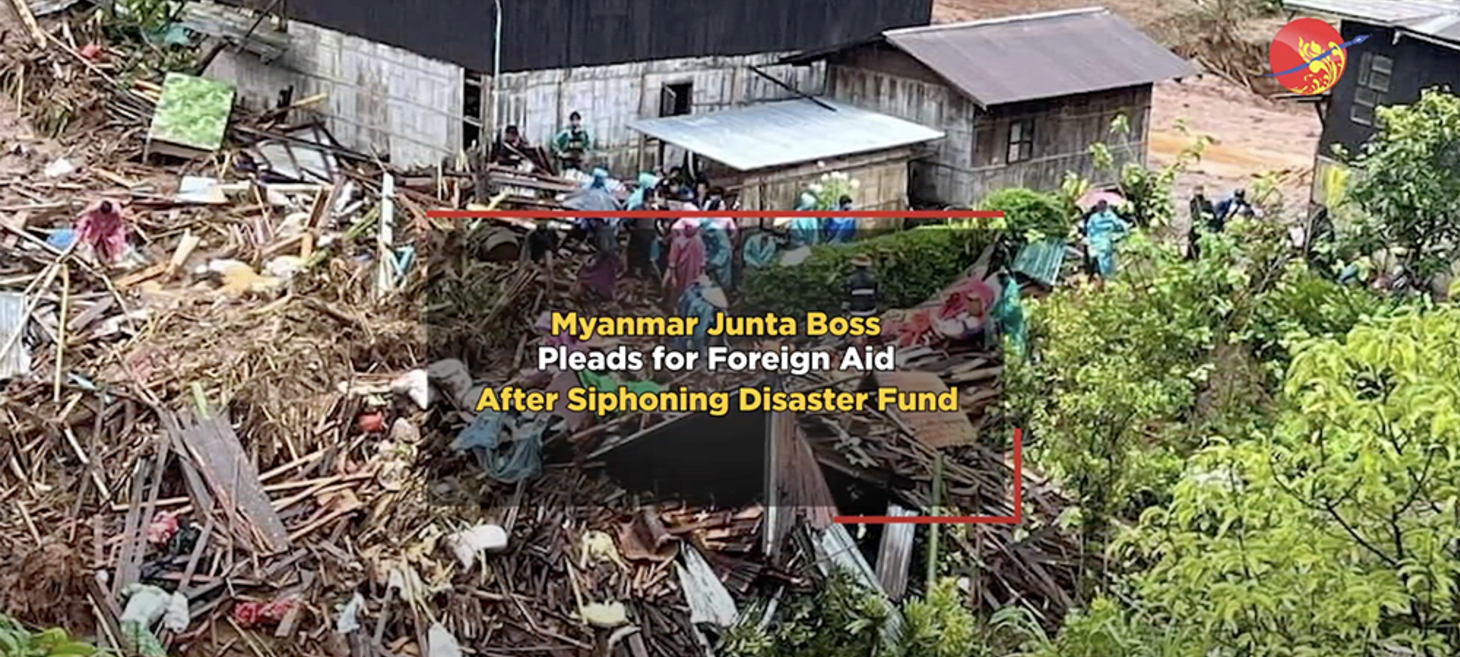
Myanmar Junta Boss Pleads for Foreign Aid After Siphoning Disaster Fund
Myanmar's junta leader has made a public plea for foreign aid to address flood relief efforts after it was revealed that the regime had previously siphoned off funds intended for disaster management. This appeal for international assistance comes amid widespread criticism of the junta's handling of the country's resources and its prioritization of military spending over humanitarian needs. The junta's mismanagement and corruption have exacerbated the suffering of flood victims, leading to increased scrutiny and skepticism from the international community regarding the regime's intentions and ability to utilize any aid received effectively. This situation highlights the ongoing challenges Myanmar is facing in securing and managing foreign aid amidst political instability and governance issues.

Rights Groups Condemn Myanmar Prisoner Executions, Warn More to Come
Human rights groups have condemned the recent execution of a husband and wife by Myanmar's military junta and are warning of more imminent executions of pro-democracy activists. The couple, Kaung Htet and Chan Myae Thu, were executed for their alleged involvement in a 2022 bombing, marking the first execution of a woman by the junta since the 2021 coup. The junta's actions have drawn international criticism, with calls for foreign governments to pressure Myanmar to halt further executions. The ASEAN Parliamentarians for Human Rights and the U.N.-backed Independent Investigative Mechanism for Myanmar have highlighted the lack of fair trials and potential crimes against humanity. Despite global condemnation, the junta continues to use executions as a tool to suppress dissent, reflecting its desperation amid battlefield setbacks and its determination to maintain control through fear.
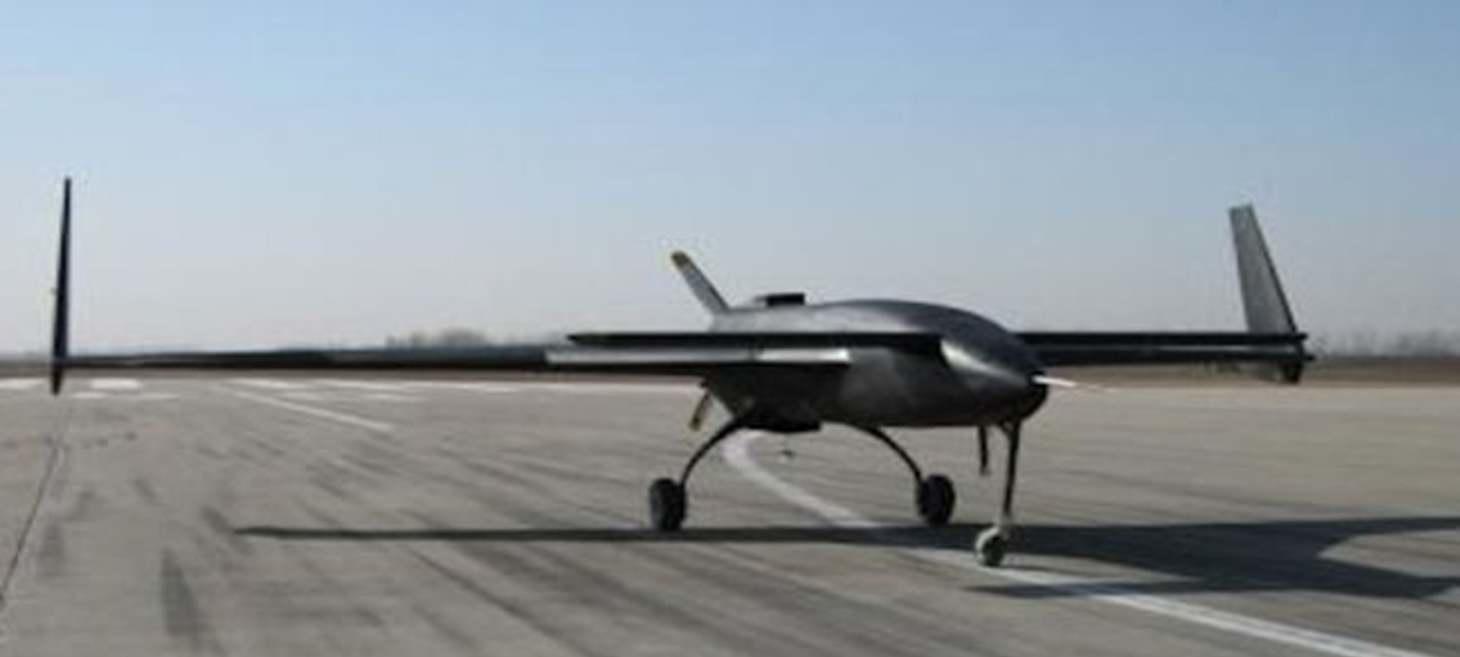
Myanmar junta discusses cooperation in drone and aerial weapons technology with Chinese companies
The Myanmar Military Council announced that a delegation visited Beijing to engage with high-tech defense companies and observe advanced aviation technologies, including drones and electronic military operations. Led by Union Minister for Defence Admiral Tin Aung San, the delegation attended the 11th Beijing Xiangshan Forum and discussed enhancing bilateral defense cooperation with China. The visit included discussions on sending trainees and strengthening military technology ties. Chinese companies are currently supplying drones to Myanmar's military, and China continues to invite Myanmar officials to various forums. Meanwhile, 276 Myanmar civil society organizations have appealed to China to cease supporting the junta and to take political action against the Myanmar Military Council. This appeal highlights concerns over China's involvement with Myanmar's military amid ongoing human rights abuses and political instability.
Politics
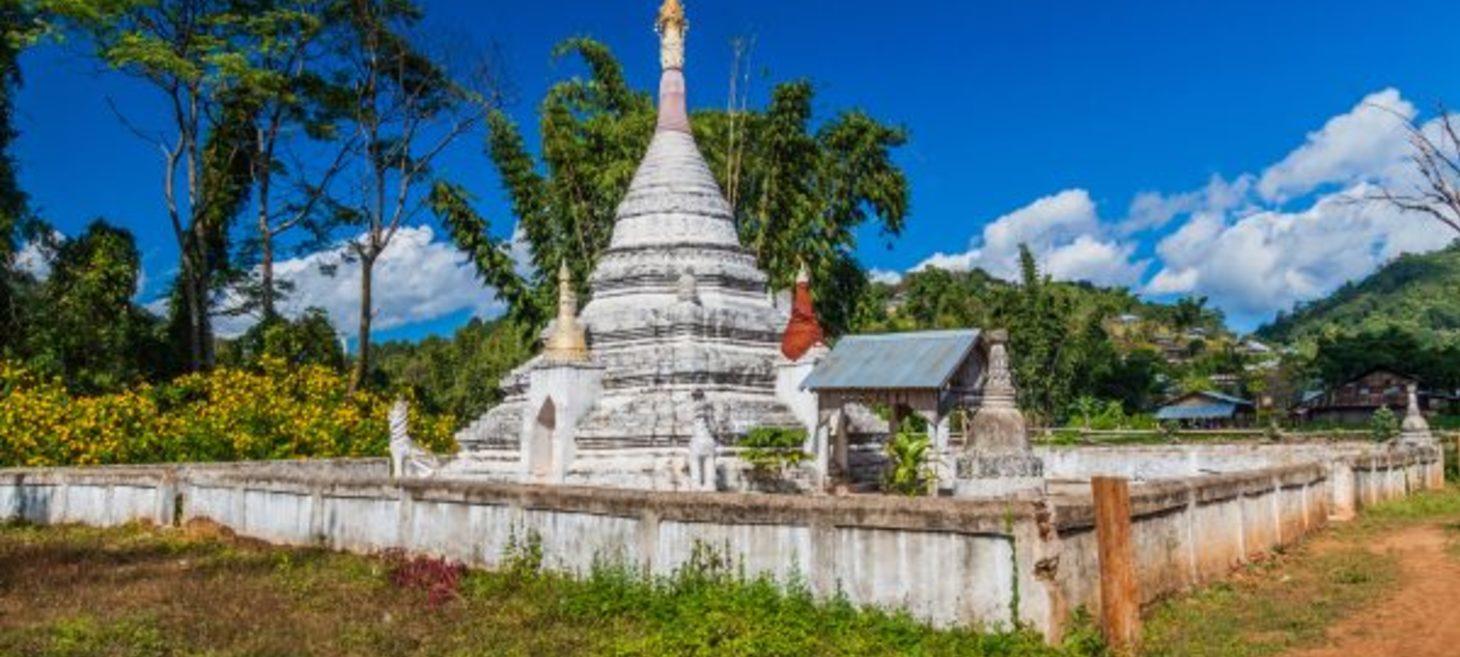
Myanmar is Not About to Become a ‘Fractured’ State
Despite concerns from analysts that Myanmar might become a "fractured" state following the military junta's potential fall, the article argues that Myanmar's situation is distinct from other countries that have experienced similar turmoil. The resistance forces in Myanmar have managed to liberate a significant portion of the population from junta control, demonstrating unprecedented collaboration and resilience. Unlike countries like Libya or Liberia, Myanmar has a history of semi-democratic governance and established political parties, providing a foundation for reform. The country's civil society remains robust, with the National Unity Government (NUG) playing a key role in opposition. The article emphasizes that Myanmar's conflict is driven by a desire for ethnic self-determination and political autonomy, rather than the resource-driven conflicts seen elsewhere. This unique context, along with the people's determination to build a federal democracy, suggests a more optimistic future for Myanmar.
Sanctions
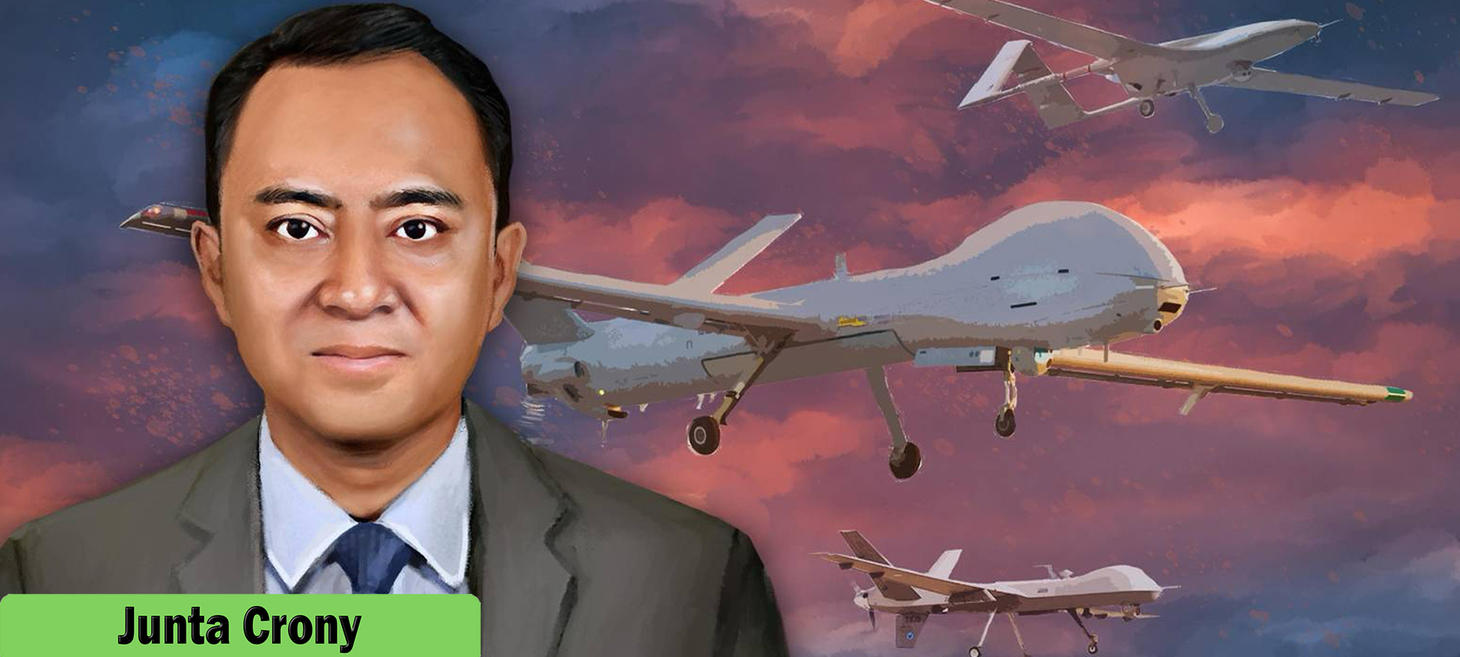
Family Friend Helps Myanmar Junta Boss Buy Arms From Israel
A family friend has reportedly aided Myanmar's junta leader in acquiring arms from Israel despite international embargoes and condemnation of the junta's human rights abuses. This collaboration highlights ongoing concerns about the junta's ability to circumvent international sanctions and continue its military operations. The involvement of personal connections in facilitating these arms deals underscores the complex network of relationships that enable the junta to maintain its military capabilities. This situation raises ethical and legal questions about enforcing international arms embargoes and the accountability of those involved in such transactions.
Telecommunications
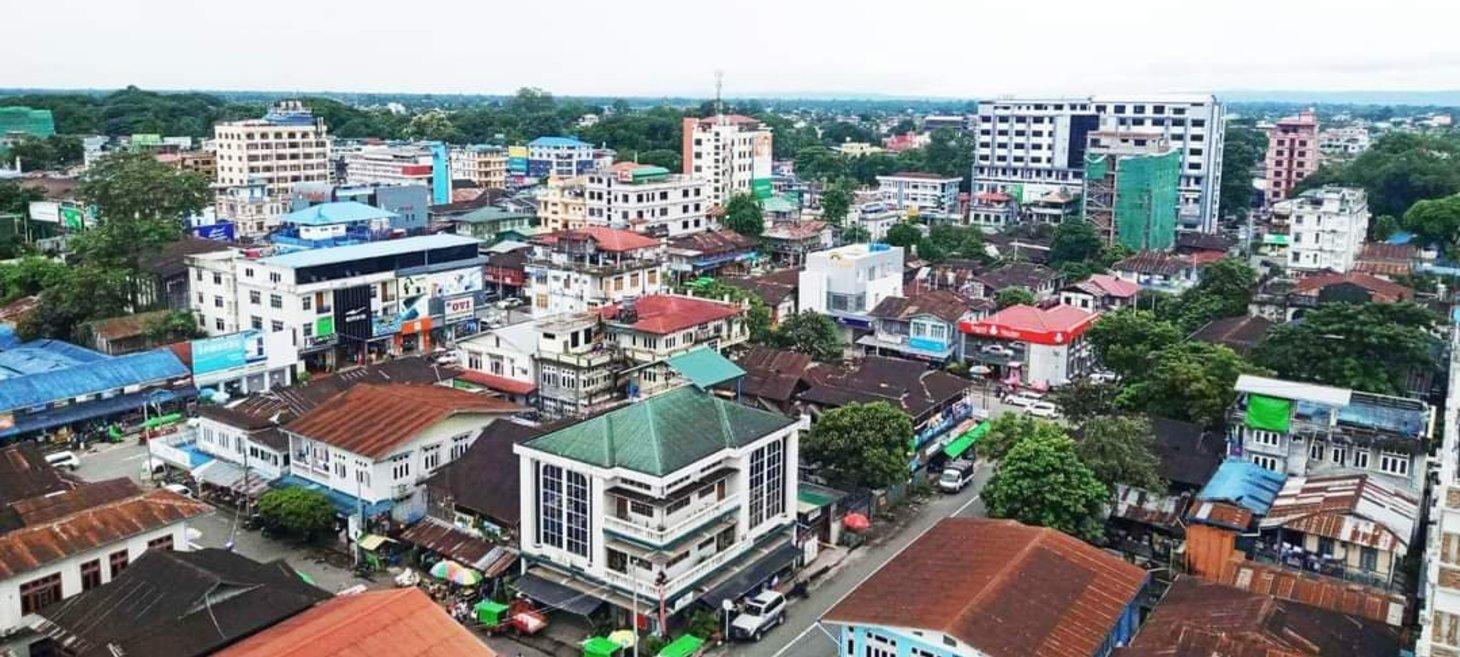
Junta Cracks Down on Myitkyina Establishments Providing Satellite Based Internet Service
The Myanmar junta has intensified its crackdown on establishments in Myitkyina, Kachin State, that provide satellite-based internet services like IP Star and Starlink, following an internet blackout imposed in July. This crackdown involves raids and arrests at shops and hotels offering internet access as the junta seeks to control communications amid rumors of potential attacks by resistance groups. The internet shutdown has forced residents to rely on satellite services for essential activities like money transfers and social media. The junta claims the shutdown is due to damaged cables, but many believe it is a strategic move to curb resistance activities. The crackdown has led to increased fear among business owners, with some abandoning plans to offer satellite internet due to legal threats and recent arrests. The situation highlights the junta's efforts to suppress communication and control information flow in conflict-affected regions.
United Nations
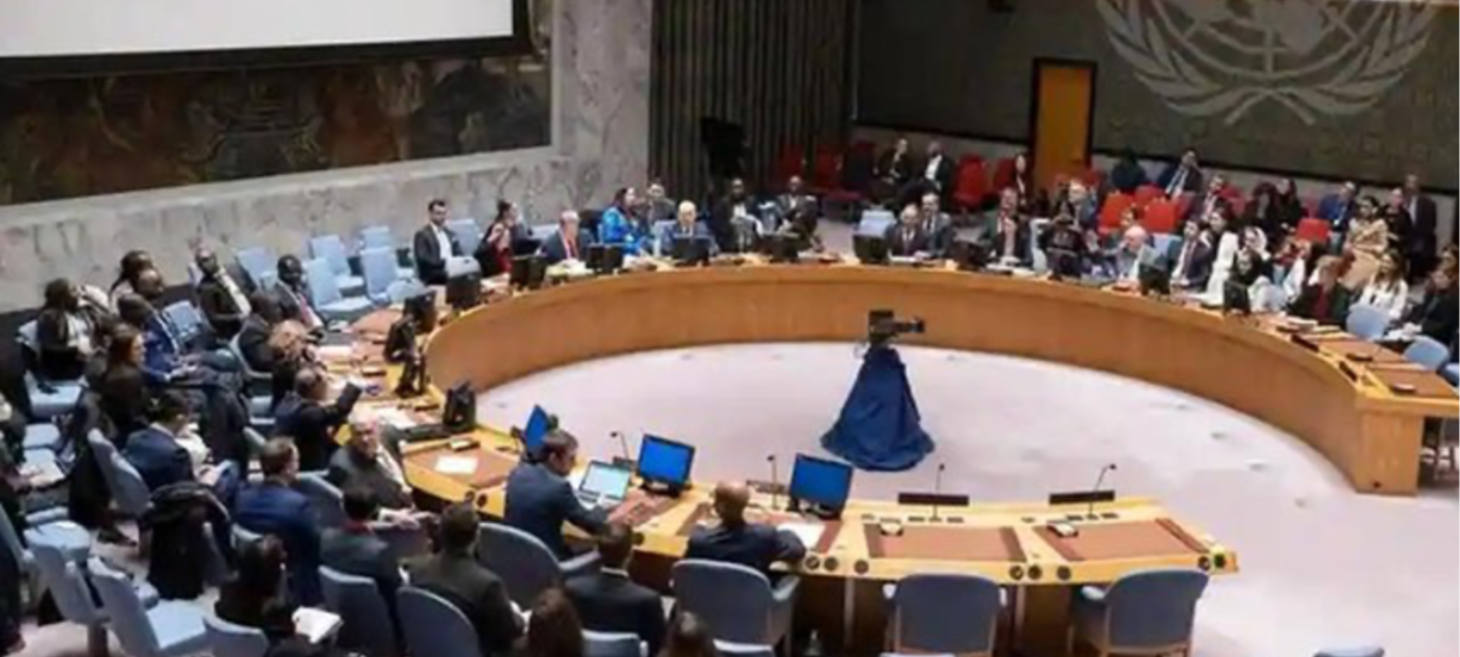
The proposed United Nations resolution on Myanmar urges the unhindered, safe, and rapid delivery of humanitarian aid.
The proposed United Nations resolution on Myanmar calls for the unhindered, safe, and rapid delivery of humanitarian aid amidst the worsening crisis in the country. The resolution emphasizes the need for the Myanmar military to cease violence and allow humanitarian access, particularly in conflict-affected areas like Rakhine State. It highlights the dire humanitarian situation, with millions needing assistance, and urges international support for the 2024 Humanitarian Needs and Response Plan. The resolution also stresses the importance of implementing ASEAN's Five-Point Consensus and calls for a UN Special Envoy to engage with stakeholders for a peaceful resolution. The international community is urged to increase humanitarian aid and support efforts to address the root causes of the crisis, including the safe return of Rohingya refugees and internally displaced persons.